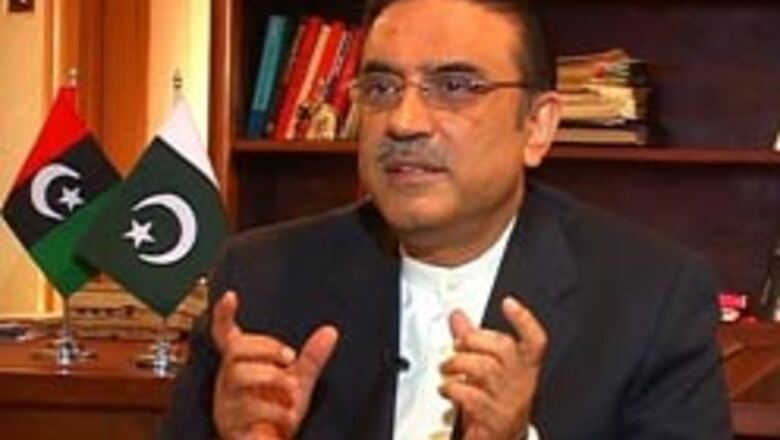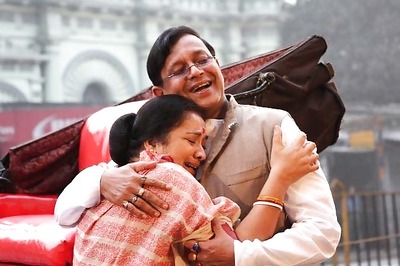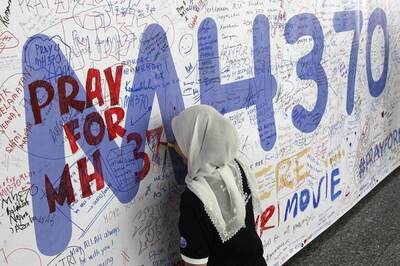
views
Islamabad/New Delhi/Washington: Pakistan's parliament Wednesday asked the world community to press India for the closure of "terror cells and to stop anti-Pakistan propaganda", even as the president and the prime minister said that the armed forces were ready to defend any aggression against the country.
A strongly-worded resolution passed unanimously by the National Assembly urged the global community to press India to "close terror hubs and stop anti-Pakistan propaganda" through the media and at international forums.
The resolution, presented by Minister of State for Foreign Affairs Malik Amad Khan, stated that Pakistan wants peace and stability in the region and end of tension with India.
President Asif Ali Zardari, while addressing a students gathering in his home province of Sindh, said: "We will defend the country till the last drop of our blood."
In an address at the Hyderabad Cadets College at Petaro, the president vowed there would no compromise on the independence and sovereignty of the country and maintained that the Pakistan armed forces were ready to defend the country against any aggression.
Prime Minister Yousuf Raza Gilani, while talking to reporters in Islamabad, said that there were no chances of war between India and Pakistan, adding: "Pakistan is ready to face any adventure".
India, on its part, will seek Saudi Arabia's support in putting pressure on Pakistan to act against terror outfits during Saudi Foreign Minister Prince Saud Al-Faisal's daylong visit to the Indian capital Friday.
In his meeting with his Saudi counterpart, Minister for External Affairs Pranab Mukherjee will share information that establishes a clear link between Pakistan-based elements and the Mumbai terror attacks, official sources said.
Mukherjee is also likely to invoke transformed ties between India and Saudi Arabia following King Abdullah's visit to New Delhi in 2006 and seek Riyadh's support in putting pressure on Islamabad to take concrete action against anti-India terror outfits in that country.
New Delhi will seek Riyadh's support in clamping down on the financing of terrorists, some of whom use Saudi charities and other fronts for generating funds for subversive activities. The issue will figure in the discussions between the two ministers, the sources said.
With Pakistan stepping up its propaganda offensive against India in the Muslim world, India is likely to draw attention to reports in sections of Saudi media that have been critical of New Delhi but sympathetic to Islamabad.
PAGE_BREAK
Meanwhile, former Pakistani prime minister Nawaz Sharif has said he would personally request President Asif Ali Zardari to take "stern action" if India furnished evidence of the involvement of Pakistani territory in the Mumbai attacks that claimed 174 lives, 26 of them foreigners.
Speaking at a Christmas cake-cutting ceremony at the Punjab Chief Minister's Secretariat at Lahore Tuesday, Sharif said "he believed the Pakistan government had no link to the blasts", The News reported Wednesday.
Sharif, whose brother Shahbaz Sharif is the chief minister of the Punjab province, also "warned" the Indian and Pakistani leaderships against making "irresponsible statements" as this would "further aggravate the situation".
On his part, the US defence chief has admitted that the Mumbai terror attacks have jeopardised operations against the Taliban in the remote parts of Pakistan.
The attacks were a tactical operation that had strategic effects, chairman of the US Joint Chiefs of Staff Admiral Mike Mullen told reporters on the flight home after a visit to Pakistan.
It placed progress against Taliban extremists using safe havens in Pakistan's remote areas in jeopardy, he said.
Before the attack in Mumbai, the Pakistani government began operations in Bajaur on the border with Afghanistan, Mullen pointed out.
During his trip, Mullen met top military and intelligence officials in Pakistan including army chief Gen Ashfaq Kayani, and director-general of Inter-Services Intelligence Lt Gen Ahmed Shuja Pasha and apparently discussed the Mumbai attacks.
"It was a good, positive meeting, and it continues our relationship," Mullen said, according to a report on the US defence department website. "I'm not going to get into specifics of what we discussed, but I am encouraged."
US officials believe extremists from the terrorist group Lashkar-e-Toiba used the safe havens along Pakistan's border with Afghanistan, to finance, plan and train for the Nov 26 Mumbai terror attack.
















Comments
0 comment